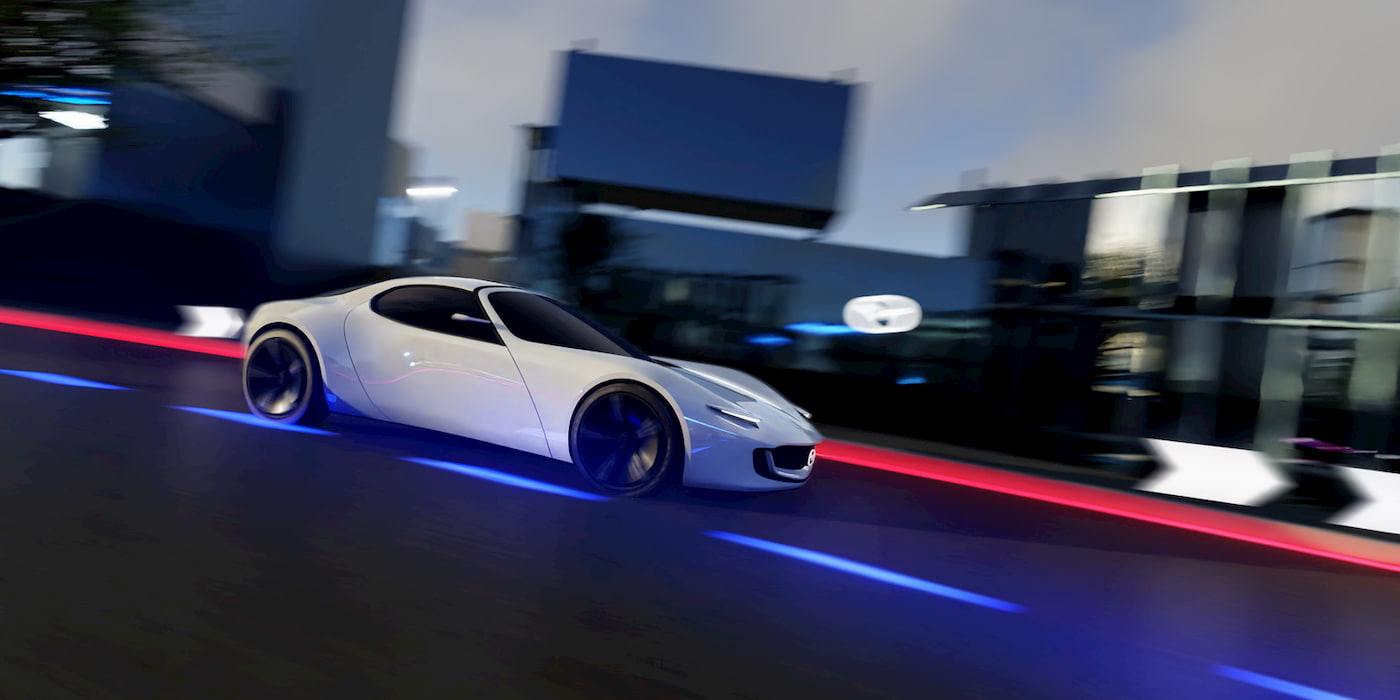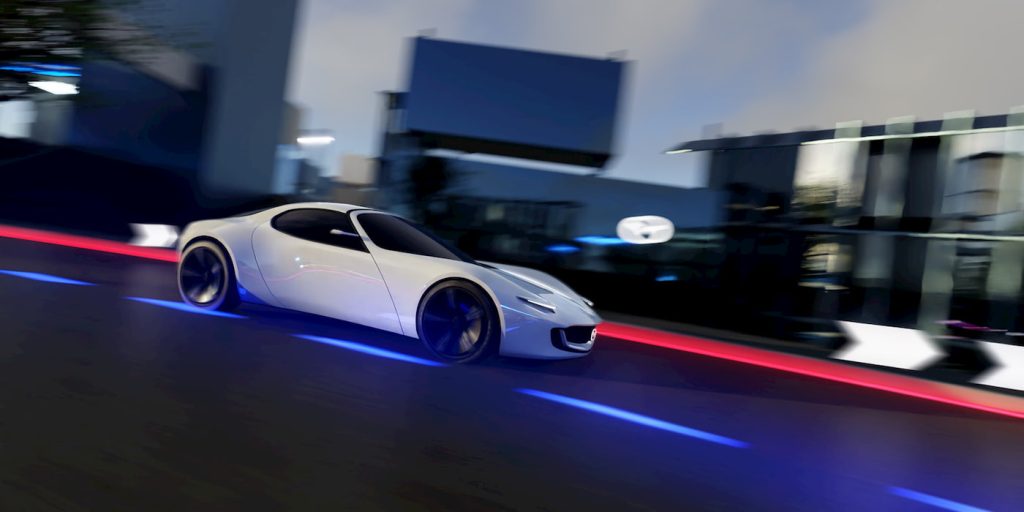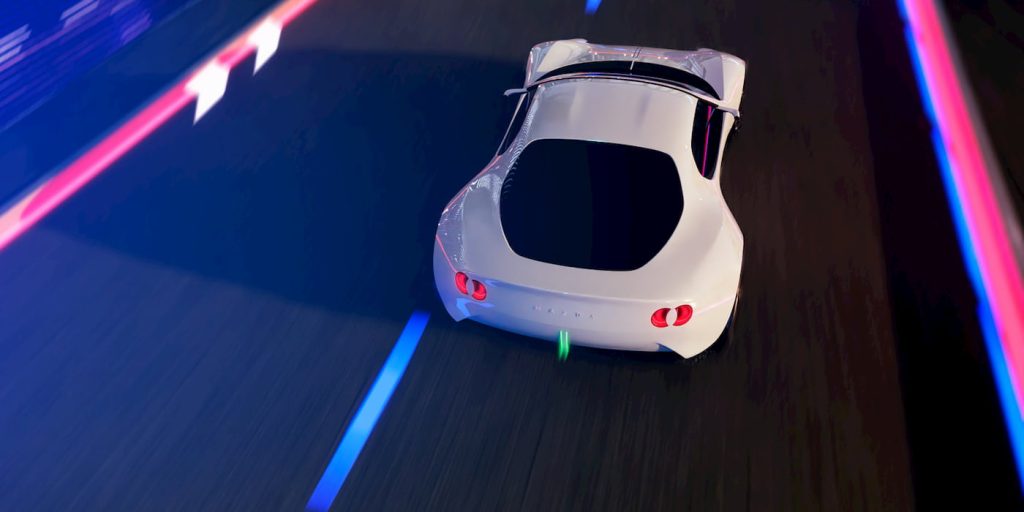
Mazda has confirmed that the next-generation MX-5 Miata will come in 2026 and will be “electrified.” Though the automaker stopped short of saying what level of electrification that will entail – hybrid, plug-in hybrid, or full electric.
The confirmation is light on details, though Mazda said it would work with Rohm Semiconductor to develop electric motors and with Envision AESC for batteries.
Back in 2019, we reported that Mazda was considering electrifying the next Miata. At that time, it wasn’t clear whether it was talking about fully electric or hybrid – and with this news, it still isn’t. But we suspect that it will probably be a conventional or plug-in hybrid, rather than fully electric.
Mazda’s branding and R&D chiefs at the time stated that the car and brand needed to shift towards being more eco-friendly, but that the main goal of the MX-5 is to remain lightweight, which is a challenge with the weight of electric car batteries.
Since then, Mazda has stated that the Miata would eventually be electrified, but now we’ve got a date: 2026 model year, which means the car will likely be on the road in mid-2025.
The Miata is an exceptionally lightweight car – the 2023 MX-5 model has a curb weight of around 2,400lbs. For comparison to some light EVs, the original Tesla Roadster, which employed expensive and lightweight carbon fiber extensively, weighed ~2,800lbs, and the similar Caterham Project V concept will weigh ~2,600.
Not only that, but the Miata is an affordable car, not just a lightweight one. Both of the aforementioned EVs are priced in the six figure range, whereas the MX-5 starts for under $30k.
But there are other lower-priced lightweight EVs, like the 3,000lb Mini Cooper SE at $30k and the defunct 2,900lb BMW i3 which first started at $42k.
So there is certainly a challenge here, but it’s not unachievable, especially as EV batteries continue to improve in energy density. With modern batteries, a shorter-range, lightweight Miata could be doable.
But regardless, given Mazda’s history with electrification, we suspect this will be a hybrid model rather than fully electric.
Mazda has been one of the slowest in the industry to adopt EV technology. Japanese automakers in general have been laggards on EV tech, and Mazda has the least-ambitious 2030 EV goal in the US. Its first EV, the MX-30, was not a great effort, and only sold 505 cars in its initial run (it came back this year, but has only sold 66 units).
On the other hand, Mazda has claimed it wants to sell only EVs and hybrids by 2030, and more recently, Mazda did pull back the curtain on its EV plans and showed a very cool “Vision study” concept, a sleek, low, two-door roadster which looked like it could be the evolution of the Miata:


While that concept is light on details, it clearly looks a lot like a Miata, and was released alongside a discussion on Mazda’s EV plans, so most thought that it would turn into some sort of electrified Miata.
As for the MX-30, one reason it wasn’t great is because its clear that the car was designed to be a PHEV, and only made into an EV for compliance with California’s emissions rules. The MX-30 eventually came out as a PHEV overseas, and it might actually be pretty good as a PHEV.
While hybrids and PHEVs are more complex than EVs – stuffing two powertrains into a car instead of one – the reduction in battery weight can result in lower overall weight for the vehicle but still give some of the benefits of electrification, like partial zero-emission operation (in the case of a PHEV) and quicker acceleration from electric motors (for both hybrids and PHEVs).
So having an electric motor onboard in any form will definitely help the Miata’s famous fun factor, which has always been a little bit held back by its small 2L 4-cylinder engine.
Electrek’s Take
Longtime readers may know that any time Mazda comes up, there’s exactly one thing that we at Electrek want to hear: that the Miata is going electric. It comes up every time anyone talks about Mazda in our newsroom. And we get a lot of comments here saying the same.
So obviously, this comes as great news to us. We’ve been begging for it for years, and it’s finally here (well… in 2026).
However, Mazda is being cagey here by using the word “electrified.” This is a bit of a weasel word in the automotive industry, to make automaker electric car efforts look more advanced than they are. PHEVs don’t actually lower emissions as much as they claim, as we’ve seen in multiple studies, and conventional hybrids still get 100% of their energy from gasoline, and thus don’t really aid a whole lot in getting us off of fossil fuels, which is required in the face of climate change.
We’re sure that a hybrid Miata will be more fun than a gas version, as long as Mazda doesn’t intentionally slow it down to feel more like a gas car… as it did with the MX-30.
But we’re also sure that a proper all-electric Miata would be even more fun than the hybrid, and simpler too because it doesn’t have to fit two powertrains into the same car.
While weight is certainly a concern, and so is cost, these both can be solved by using a smaller battery. As much as the market seems to think it needs enormous range numbers on every car, the Miata isn’t a car you’re going to take the family on a roadtrip in anyway, and fast charging would be sufficient to allow people to get out and stretch their legs every once in a while.
As a Tesla Roadster owner myself (I really like small cars), people often ask if I wish the car had more range, or Supercharging capability, and my answer is: the car is so tiny that I wouldn’t take it on a roadtrip anyway, and frankly, I’d rather have a lighter battery than more range.
So Mazda could employ this option – a smaller, cheaper, lighter battery, mounted low in the car, with an engine in the rear (and thus no driveshaft tunnel, saving weight and complexity and interior space).
It probably won’t be 2,400lbs, and it probably won’t be $30,000 (at least in the production numbers Mazda would likely target), but I have faith that Mazda could get in the ballpark of those two numbers, while offering a totally unique and improved driving experience from the classic Miatas.
I won’t hold my breath, cause I still doubt we’ll see it, but I’d love to be surprised.
